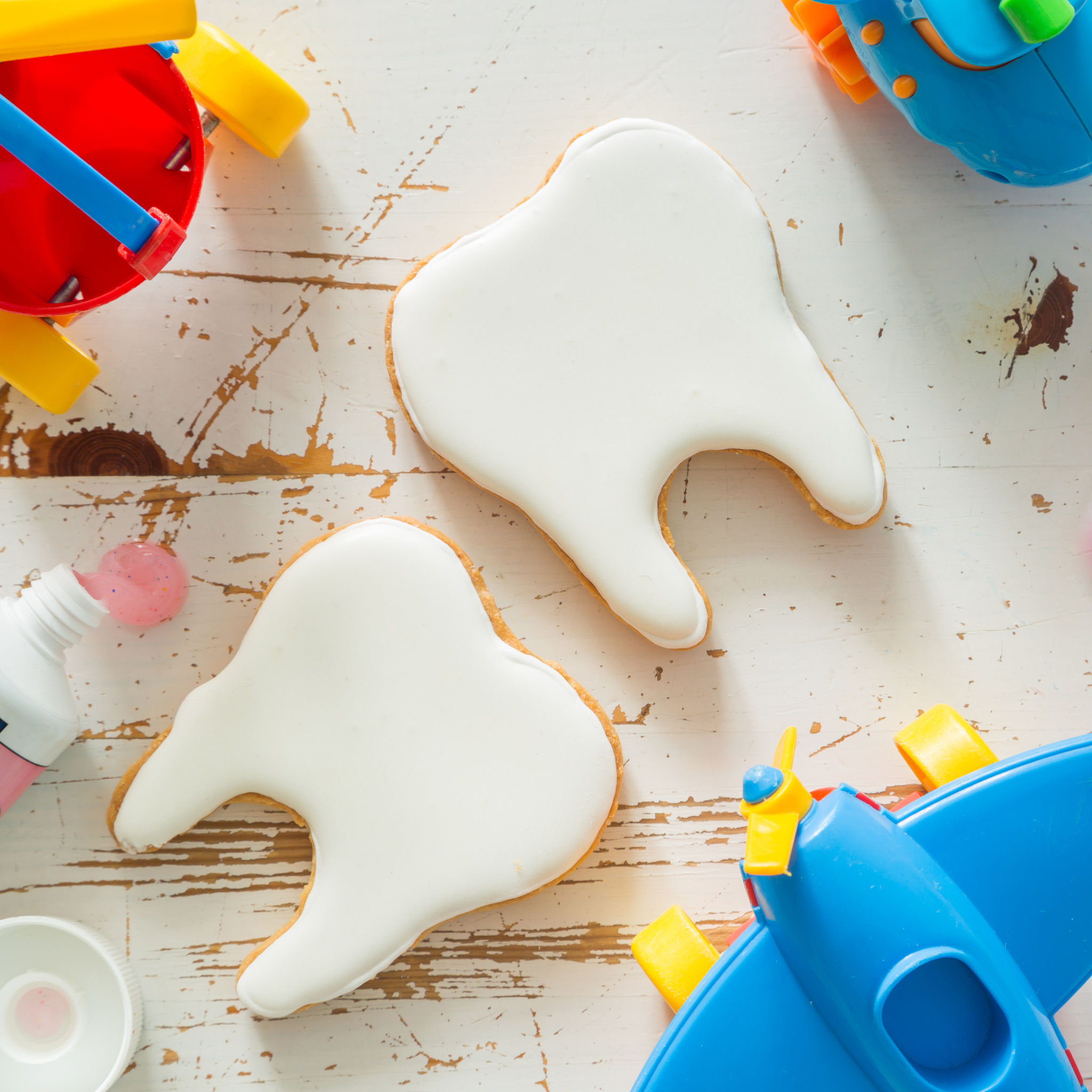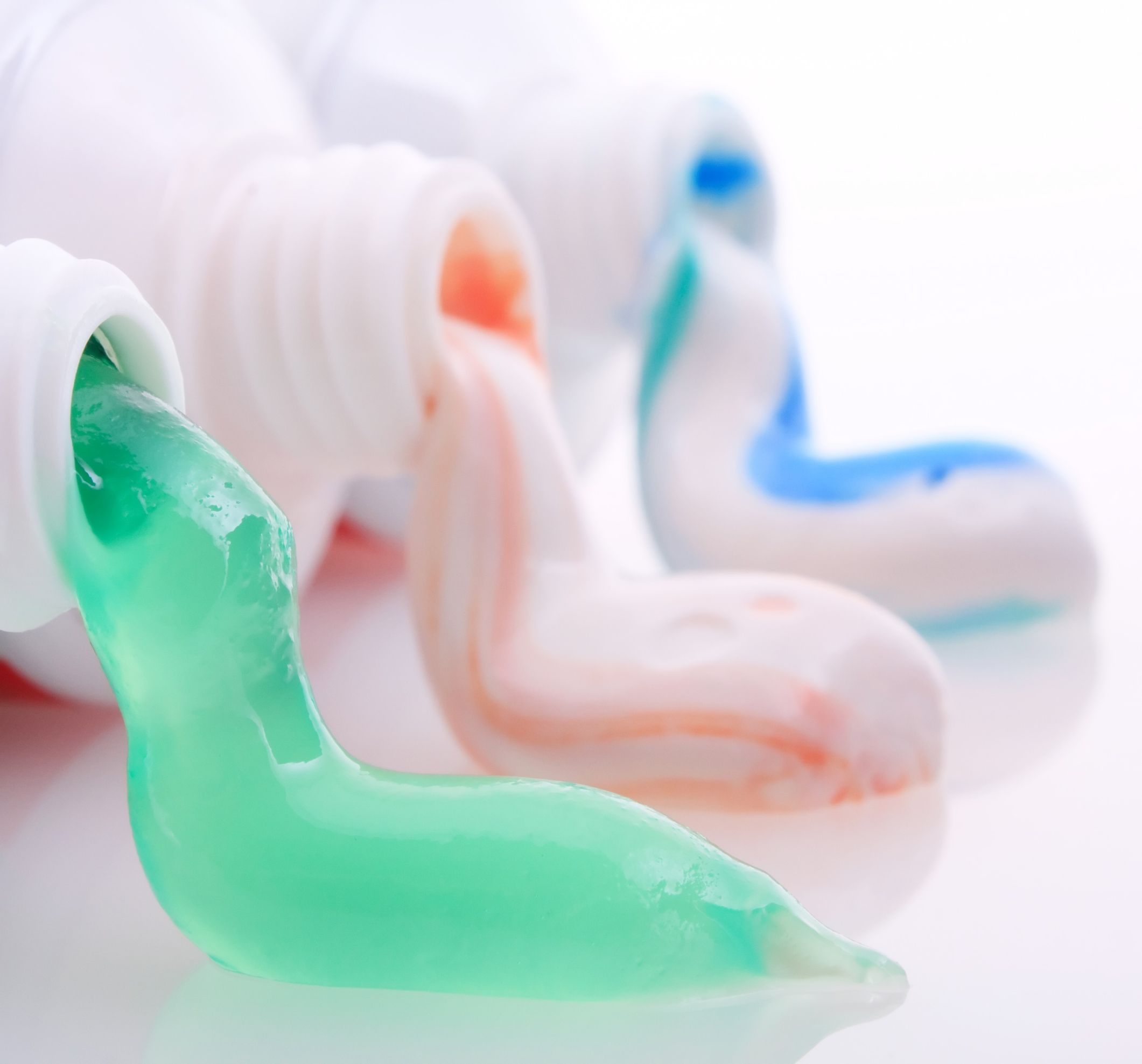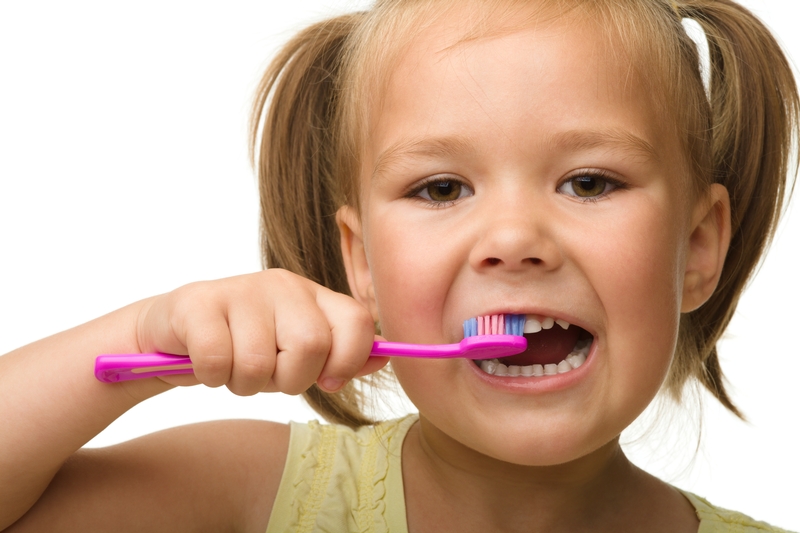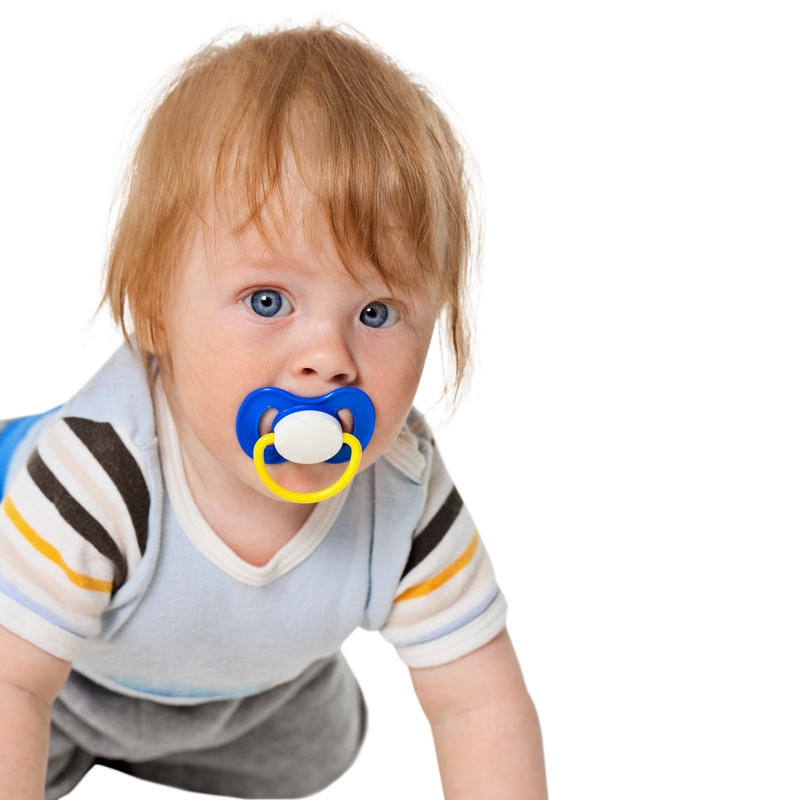
When it comes to protecting your child’s teeth, the more you know, the better a job you’ll be able to do. Especially for first time parents, your knowledge about early dentistry and baby teeth may be limited, because this is a whole new adventure for you. So, here are a few things perhaps you didn’t know about baby teeth, and how you can best care for your child when it comes to oral health.
Your baby’s first tooth is a big childhood milestone. You’ll be saying ‘so long’ to that gummy grin, and you’ll likely deal with a little fussing as your baby’s teeth begin to erupt and grow in. This process can come with a little pain and irritability for your baby, as well as a low grade fever on occasion. That said, a lot more changes during this stage than the way your baby’s smile looks.
Baby teeth, also called primary teeth, serve a major purpose for your child. Those baby teeth prepare the mouth for the permanent teeth that will carry your child through adulthood. These primary teeth serve the obvious purposes– chewing and eating, but they also aid your child in speech functions, while also serving as placeholders for the permanent teeth that will eventually begin to replace them.
Keeping these baby teeth healthy as your child grows and matures will help ensure a healthier dental path for them as they approach adulthood. Proper dental hygiene and preventative dental care work in tandem to help keep your child’s teeth and mouth healthy and prevent dental problems down the road that can be both painful and costly.

Our team at Tedford Family Dentistry in Chattanooga would love to help you and your child take exceptional care of those precious primary teeth. If you need to schedule an appointment for your child, contact us today!
Start ’em early! It’s never too soon to start imparting to your children the importance of good oral hygiene. Experts say as soon as your baby starts getting teeth in, you should begin cleaning them, and here at Tedford Family Dentistry we fully subscribe to this belief. You can start by wiping your baby’s teeth clean with a soft cloth and warm water. When your baby reaches the 18 months mark, you can begin brushing your baby’s teeth with a pea-sized amount of low-fluoride toothpaste. As they grow, they can begin taking more and more ownership of the task, but for a good while, they will need a lot of help and supervision.
Establishing these good oral health habits out the gate will help reduce the risk of tooth decay and cavities in baby teeth, of course, but getting into an early routine of regular brushing will also likely carry over into adulthood. Make it a priority to help your young children brush their teeth at least twice a day, and increase the chance that those good habits will stick.
When your little ones are young, it’s helpful to find ways to make brushing fun. Let them choose their own toothbrush at the store with colors or characters they love. Brush your teeth with your child, or even let them brush your teeth for fun. Use a timer so it feels like a game, but also reminds them to brush for the right amount of time, ensuring they target each area of the mouth for a thorough cleaning.
It’s no surprise that kids who learn great brushing and flossing habits early in life experience far less dental issues in adulthood. Laying that foundation is imperative. By age 5, nearly 50% of children have had one or more cavities! A lot of parents buy into the belief that decay in baby teeth doesn’t matter since those teeth will eventually be lost and replaced with permanent ones; however, this is a gross misconception. Decay in baby teeth can, in fact, have an adverse effect on the health of adult teeth, and can lead to dental issues later in life. This is why it’s so important to be proactive about preventative care from the get-go, caring for your baby’s teeth as soon as they begin to come in.
Every pediatric dentist would agree that teaching your kids to actually brush their teeth with regularity is only part of the job. You also need to teach them the proper techniques to be completely successful. Most parents are familiar with this scenario. Your child puts a glob of toothpaste on a toothbrush, half of which finds its way into the sink (aka NOT into your child’s mouth), and he or she spends maybe 15 seconds lathering it up before a quick spit, and they’re on their merry way. Not gonna cut it. You can help your child learn how to do a better job by demonstrating the best way. Brush your teeth at the same time, showing your child the best brushing techniques. This way they can also get a better feel for how much time they should be spending on the task.
The American Dental Association recommends a full two minutes of brushing. Several seconds of aggressive brushing can actually be harmful and cause distress to teeth and gums. This is a great case of slow and steady wins the race. Teach your kids to take their time, concentrating on all surfaces of their teeth, as well as the tongue and gums. Lots of bacteria live here, and it takes diligence to combat those germs that can cause bad breath as well as gingivitis.
Leading by example will be key in teaching your children these healthy oral care habits, but you should also ensure they receive the recommended preventive care from an expert pediatric dentist. That’s where we come in! At Tedford Family and Pediatric Dentistry in Ooltewah, TN, we take a preventative approach and believe trips to the dentist can be fun. We go to great lengths to ensure our young patients have positive experiences each time they come in to see us, and we are in it for the long haul. Whether the patient is one year old, or ninety, we believe in providing the best possible care, encouraging great habits, and keeping your pearlies looking and feeling their very best.
 An entire month to celebrate dental awareness? Yep, and it’s one of our favorites! Celebrate National Children’s Dental Health Month this February with us as we promote healthy gums, teeth, and overall oral hygiene in children. Looking for ways to improve your child’s dental habits? Here’s what you need to keep your little one’s teeth clean and healthy.
An entire month to celebrate dental awareness? Yep, and it’s one of our favorites! Celebrate National Children’s Dental Health Month this February with us as we promote healthy gums, teeth, and overall oral hygiene in children. Looking for ways to improve your child’s dental habits? Here’s what you need to keep your little one’s teeth clean and healthy. With countless toothpaste options available, it can be overwhelming to select between all natural ingredients, whiteners and fluorides. When selecting toothpastes your preferences and personal needs should be your primary consideration. This brief overview can help you to navigate the dental care aisle and select the best toothpaste.
With countless toothpaste options available, it can be overwhelming to select between all natural ingredients, whiteners and fluorides. When selecting toothpastes your preferences and personal needs should be your primary consideration. This brief overview can help you to navigate the dental care aisle and select the best toothpaste.
Fluoride
One of the most important ingredients in toothpaste is fluoride. This naturally occurring mineral helps to fight cavities and tooth decay. The sugars, starches and left over food particles found in your mouth are the ideal energy source for the bacteria in your mouth. As the bacteria feed, they release a damaging acid. Fluoride strengthens the enamel on your teeth, making them less susceptible damage. Using a fluoride toothpaste can also protect against tooth decay.
Even if your water contains high levels of fluoride, studies have shown that using a fluoride toothpaste can help to strengthen teeth.
Tartar Control
There are a variety of tartar controlling toothpastes with fluoride available. Plaque is a layer of bacteria that occurs on teeth. If plaque isn’t removed, it hardens to form tartar. Tartar is more difficult to remove and overtime can build up and lead to gum disease.
Pyrophosphates, zinc citrate and other chemical compounds reduce tartar buildup. There are some brands on the market that also contain triclosan, an antibiotic that kills bacteria. Toothpastes that contain multiple plaque fighters are more effective in controlling tartar buildup.
Sensitive Teeth
Toothpastes with potassium nitrate or strontium chloride are ideal for sensitive teeth. These ingredients fight tooth sensitivity by blocking the nerve pathways. These toothpastes do not provide immediate relief. In most cases, it takes approximately 4 weeks to notice a decrease in sensitivity.
Whitening
Whitening toothpastes are some of the most popular choices on the market. Rather than containing bleaches, most whitening toothpastes contain abrasive chemicals or particles. These substances help to polish the teeth and bind to remove stains. Abrasive whiteners have found to be no harder on tooth enamel than any other varieties of toothpaste.
There are more factors to consider when selecting a toothpaste. Choose one that contains the American Dental Association seal of approval. This marking indicates an independent review board has evaluated its safety and effectiveness. Also, steer away toothpastes that are made in China. The FDA found some to contain diethylene glycol, a potentially toxic substance.
With such a wide variety of toothpastes available, it can be challenging to select which is the best fit for you. Beyond fluoride protection, the other ingredients are a matter of preference. No matter which type of toothpaste you choose, it is important to brush your teeth thoroughly for approximately 2 minutes, twice a day.
Our Ooltewah dentist at Tedford Family Dentistry can help you to select a toothpaste and create a bright, shining smile. Call us at 423-238-8887 to make your dentist appointment today.
 Just as candy, sweets and sports drinks can increase your risk for tooth decay, so too can liquid medications. There are a variety of ingredients commonly found in cough drops and syrup medications that can leave you more susceptible to tooth decay and cavities, especially when the medicine is taken consistently over long periods of time.
Just as candy, sweets and sports drinks can increase your risk for tooth decay, so too can liquid medications. There are a variety of ingredients commonly found in cough drops and syrup medications that can leave you more susceptible to tooth decay and cavities, especially when the medicine is taken consistently over long periods of time.  Good oral health habits start when children are young. Our Ooltewah dentist understands that it can be a challenge to get your children to brush their teeth. Here are a few helpful tips to make teeth brushing a little more fun:
Good oral health habits start when children are young. Our Ooltewah dentist understands that it can be a challenge to get your children to brush their teeth. Here are a few helpful tips to make teeth brushing a little more fun: Q: Energy drinks don’t cause cavities?
Q: Energy drinks don’t cause cavities? From the cold unusual objects to unfamiliar surroundings, children and adults alike share fears of the dentist. No matter the fears, visits to the dentist will keep teeth healthy and promote good oral health habits. Here are a few tips to keeping the fears at bay and their smile pearly white.
From the cold unusual objects to unfamiliar surroundings, children and adults alike share fears of the dentist. No matter the fears, visits to the dentist will keep teeth healthy and promote good oral health habits. Here are a few tips to keeping the fears at bay and their smile pearly white.
The Earlier the Better
The younger a child is when they start visiting a dentist, the more likely they will become comfortable with the surroundings and the dentist. According to the American Academy of Pediatric Dentistry, your child’s first trip to the dentist should be at age one or when their first tooth is visible. Early prevention will increase the overall health of your mouth.
According to several studies, more preschool students have cavities than ever before. The national study states that, “more than 1 in 4 children in the United states has had at least one cavity by the age of 4. Many kids get cavities as early as age 2.”
Don’t Over Share
Try not to share too many details before dental appointments. Too much explaining can result in more questions as well is scare many children. Keep a positive attitude and let the dentist and hygienists explain the procedures. Also, refrain from taking your children to your dentist appointment. Even though you may not realize it, you may be anxious. Telling about past or current procedures can instill more fear, especially if those procedures are not necessary.
Play Pretend
Grab a toothbrush and let your child practice being both the dentist and the patient. Brushing and counting teeth will help to prepare them for the actual office visit. You want your child to become familiar with the routine in hopes that they will be more comfortable with the procedures. Additionally, there are a variety of children’s books with illustrations that are design to educate and relieve fears of the dentist.
Fussing is Normal
Pediatric dentists are used to children and tantrums. It is normal that a child will cry, whine or fuss during an appointment. Allow the staff to guide and direct you. Many will ask that you hold your child’s hand to help comfort them during the visit. If your little one has a favorite toy or stuffed animal, bring that as a comfort and distraction.
Encouraging the importance of good dental health is important. Explain that the dentist helps to keep their smile pretty, and that regular visits are necessary. Follow these tips are your child is sure to overcome their fears.
Our Ooltewah pediatric denistry office can help calm your child's fears of the dentist as well as keep their teeth pearly white.
Written by Tiffany Hutton Sucking on a thumb or pacifier is extremely common in babies and toddlers. It offers a sense of safety, security and relaxation. However, prolonged sucking on a pacifier or thumb can result in a variety of dental issues. Thumb sucking or the use of a pacifier after age two can lead to a misalignment of teeth, changes in the shape of the roof of the mouth and result in problems with proper mouth growth. The risk of dental complications increases if the behavior continues after the teeth start coming in.
Sucking on a thumb or pacifier is extremely common in babies and toddlers. It offers a sense of safety, security and relaxation. However, prolonged sucking on a pacifier or thumb can result in a variety of dental issues. Thumb sucking or the use of a pacifier after age two can lead to a misalignment of teeth, changes in the shape of the roof of the mouth and result in problems with proper mouth growth. The risk of dental complications increases if the behavior continues after the teeth start coming in.